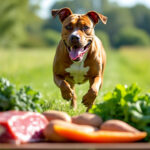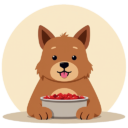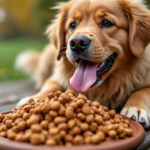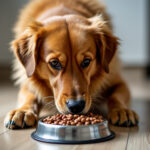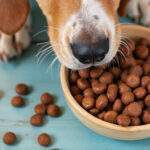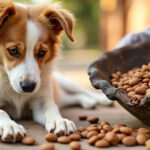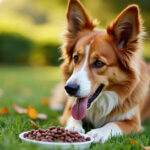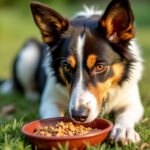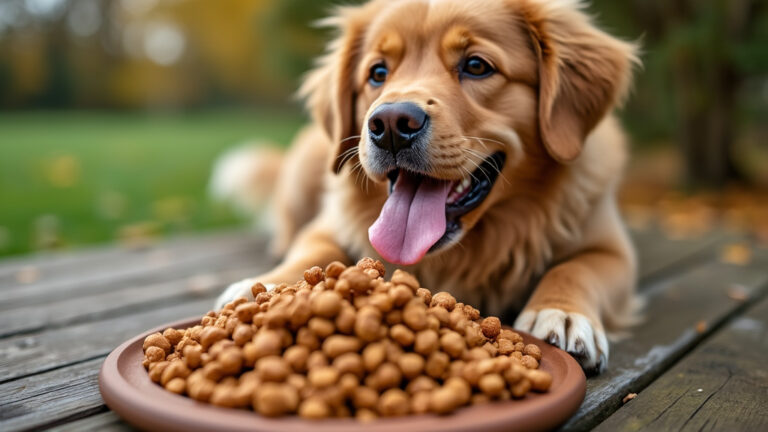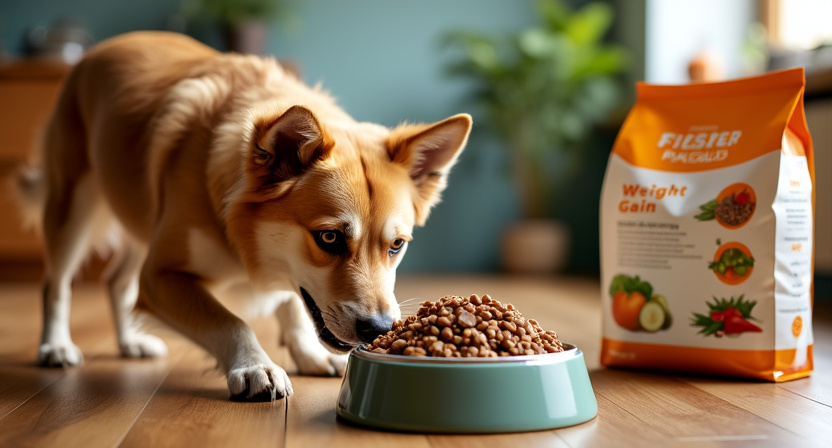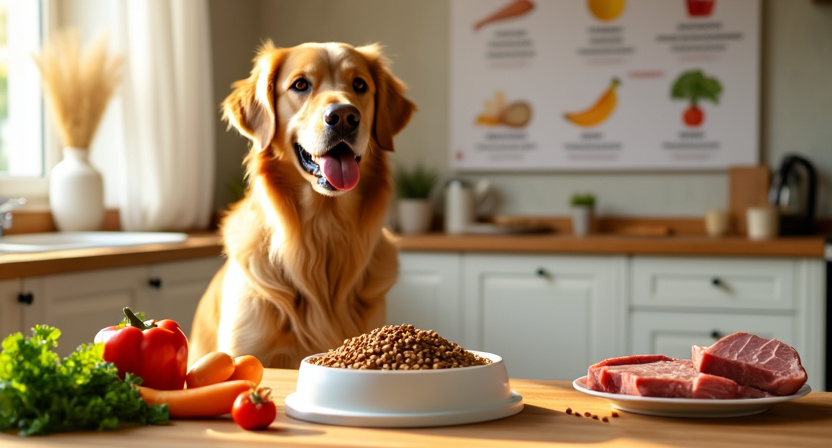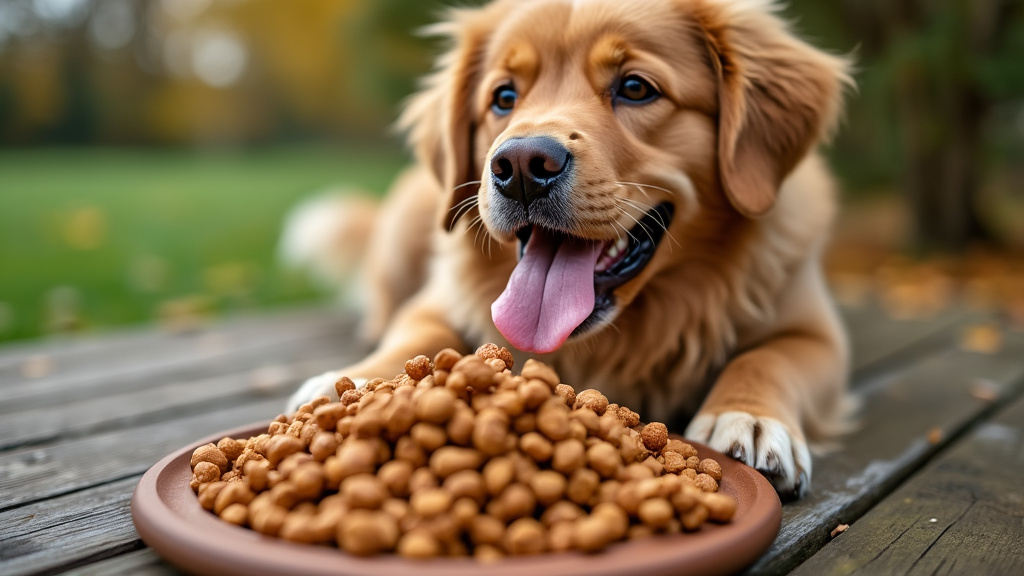Helping your dog gain weight demands a careful plan centered on high-quality, nutrient-rich foods. From protein-packed options like Ollie’s Chicken and Carrot Recipe to calorie-dense selections such as Go Solutions Carnivore Recipe, many specially formulated dog foods promote healthy weight gain while maintaining nutritional balance.
Table of Contents
ToggleKey Takeaways:
- Choose dog foods with high protein content (30% or more) and increased fat levels (15% or higher) for effective weight gain.
- Consider palatability, digestibility, and caloric density when selecting the right dog food for weight gain.
- Offer multiple small meals throughout the day to keep energy levels steady and encourage consistent weight gain.
- Add nutritious foods like sweet potatoes, pumpkin, and eggs to your dog’s diet to increase calorie intake.
- Conduct regular weight checks and consult with a veterinarian to monitor progress and adjust the diet as needed.
Why Some Dogs Need to Gain Weight
Dogs that are underweight can face serious health challenges. They often have less energy, weaker immune systems, and are more susceptible to illnesses. Several factors can lead to a dog being too thin, including:
Common Causes of Underweight Dogs
- Chronic illnesses
- Parasite infections
- Inadequate nutrition
- Excessive physical activity
It’s crucial to tackle weight issues promptly. I always recommend consulting a vet to determine the root cause and develop a safe weight gain plan. According to the Association for Pet Obesity Prevention, about 5% of dogs in the US are underweight, putting them at risk for various health problems. Addressing weight concerns can significantly improve your dog’s overall well-being and quality of life.
Key Characteristics of Dog Food for Weight Gain
Palatability and Digestibility
When choosing dog food for weight gain, I focus on three crucial factors: palatability, digestibility, and caloric density. Highly palatable foods are essential to encourage your dog to eat more. Ollie’s Chicken and Carrot recipe is a prime example, offering a rich flavor profile with high protein and fat content that dogs find irresistible.
Digestibility is equally important. I recommend foods with low fiber content, as they allow for better nutrient absorption. You can gauge digestibility by observing your dog’s stools – firm, low-volume, and well-formed stools indicate good digestibility.
Caloric density is the third key factor. Energy-dense foods are vital for healthy weight gain. The Go Solutions Carnivore recipe, featuring lamb and wild boar, is an excellent choice. It packs a high calorie count in each serving, helping your dog bulk up efficiently.
To maximize weight gain:
- Choose foods with high-quality protein sources
- Look for recipes with healthy fats like fish oil or flaxseed
- Opt for foods with easily digestible carbohydrates
- Consider adding calorie-dense toppers or supplements
By prioritizing these characteristics, you’ll be well on your way to boosting your dog’s weight in a healthy, sustainable manner.
Nutritional Requirements for Weight Gain
Key Nutrients for Healthy Weight Gain
Protein is crucial for lean muscle growth in dogs aiming to gain weight. I recommend looking for foods with high protein content, such as Nom Nom Beef Mash (35% protein) or Open Farm Freeze Dried Raw Patties (41% protein). Fat is equally important for a calorie-dense diet. Options like Crave High Protein Grain-Free Dry Dog Food (minimum 17% fat) or A Pup Above provide ample fat content. Don’t forget easily digestible carbohydrates like sweet potatoes and brown rice. These components work together to support healthy weight gain. Here’s what to look for in a weight gain-focused dog food:
- High protein content (30% or more)
- Elevated fat levels (15% or higher)
- Quality carbohydrate sources
- Balanced vitamin and mineral profile
Remember, while focusing on weight gain, it’s vital to maintain overall nutritional balance for your dog’s health.
Top Recommended Dog Foods for Weight Gain
High-Protein and Fat-Rich Options
I’ve identified several top-tier dog foods that can help your pup gain weight healthily. Ollie’s Chicken and Carrot Recipe stands out with its impressive 46% protein and 34% fat content, perfect for bulking up. For a calorie-dense meal, Go Solutions Carnivore Recipe combines lamb and wild boar. Nom Nom Beef Mash offers a balanced 35% protein and 17% fat profile, while Open Farm Freeze Dried Raw Patties pack a punch with 41% protein and 38% fat. For puppies, Merrick Grain-Free Puppy Real Chicken and Sweet Potato is an excellent choice. Other notable options include:
- A Pup Above: Human-grade, low-temperature cooked food
- Crave High Protein Grain-Free Dry Dog Food: Minimum 34% protein, 17% fat
- Ziwi Peak Wet Dog Food: 91% meat, organs, and green-lipped mussels
These foods cater to different preferences and dietary needs, ensuring you’ll find the right fit for your dog’s weight gain journey.
Feeding Strategies and Supplementary Foods
Optimal Feeding Schedule
I recommend splitting your dog’s daily food intake into multiple small meals throughout the day. This approach helps maintain steady energy levels and encourages consistent weight gain. Aim for 3-4 meals spaced evenly, adjusting portion sizes based on your pet’s needs and your vet’s guidance.
Nutritious Supplementary Foods
To boost your dog’s calorie intake and provide additional nutrients, consider adding these supplementary foods to their diet:
- Sweet potatoes: Rich in fiber and vitamins
- Pumpkin: Supports digestive health
- Peanut butter: High in healthy fats and protein
- Eggs: Excellent source of protein and amino acids
- Rice: Easily digestible carbohydrate for energy
Introduce these foods gradually and in moderation. Monitor your dog’s response and adjust quantities as needed. Remember, these supplements should complement, not replace, a balanced commercial dog food.
Regular weight checks and body condition assessments are crucial to track progress. If you don’t see desired results, don’t hesitate to tweak the diet. Each dog is unique, so what works for one might not work for another. Always consult with your veterinarian before making significant changes to your dog’s diet, especially if they have underlying health conditions or specific nutritional requirements.
Sources:
Dog Food Advisor
PetMD
Wag!
Rogue Pet Science
Frequently Asked Questions
What are the signs that a dog is underweight?
Signs of an underweight dog include visible ribs, spine, and hip bones, less energy, a weaker immune system, and increased susceptibility to illnesses.
How much protein should dog food for weight gain contain?
Dog food for weight gain should contain 30% or more protein content to support lean muscle growth.
What is the ideal fat content in dog food for weight gain?
Look for dog foods with 15% or higher fat content to provide a calorie-dense diet for weight gain.
How often should I feed my dog to promote weight gain?
It’s recommended to split your dog’s daily food intake into 3-4 small meals spaced evenly throughout the day.
Can I add human foods to my dog’s diet for weight gain?
Yes, you can add nutritious supplementary foods like sweet potatoes, pumpkin, peanut butter, eggs, and rice in moderation to boost calorie intake.
How long does it take to see results in a dog’s weight gain?
Results vary depending on the individual dog. Regular weight checks and body condition assessments are crucial to track progress.
Should I consult a vet before changing my dog’s diet for weight gain?
Yes, it’s always recommended to consult with your veterinarian before making significant changes to your dog’s diet, especially for weight gain purposes.

